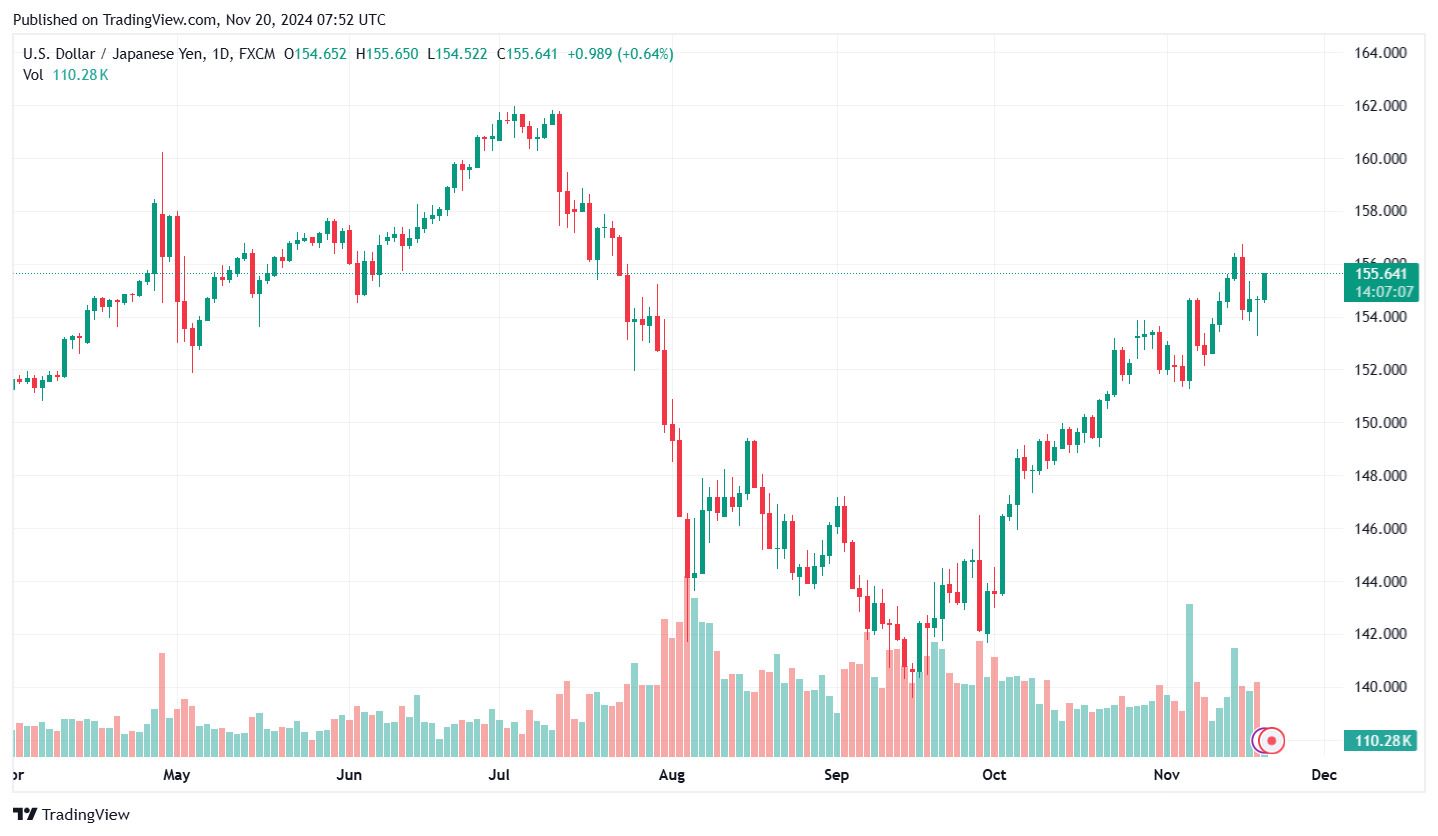Why is the Yen weakening?
The Japanese Yen (JPY) continued to depreciate against the US Dollar (USD), pushing the USD/JPY pair to a weekly high near 155.50 in European trading on Wednesday morning, according to FXStreet. The main reason was concerns about when the Bank of Japan (BoJ) would raise interest rates, while US government bond yields recovered, supporting the USD.

BoJ Governor Kazuo Ueda has recently hinted at a possible rate hike but has not made any clear commitment, leaving markets confused. Meanwhile, new data from Japan showed that exports rose 3.1% year-on-year in October, while imports rose 0.4%, resulting in a trade deficit of 461.2 billion yen.
In the US, government bond yields rose sharply on expectations that the Federal Reserve would not cut interest rates as quickly as expected. Kansas City Fed President Jeffrey Schmid said the central bank would keep inflation in check, even though that could lead to higher interest rates in the future.
Additionally, the White House's decision not to change its nuclear policy following Russia's moves has reduced global risk aversion, further reducing demand for holding the yen.
As a result, investors are selling off the yen as confidence in Japan’s economic outlook and monetary policy wanes. Fears that Japan will intervene in the currency market are only limiting the depreciation, not reversing the flow.
What happens next?
Investors are looking forward to speeches from key Fed members later in the day to determine the next direction of the USD. Meanwhile, the short-term outlook for USD/JPY remains bullish, but interventions from Japan could change the picture at any time.





